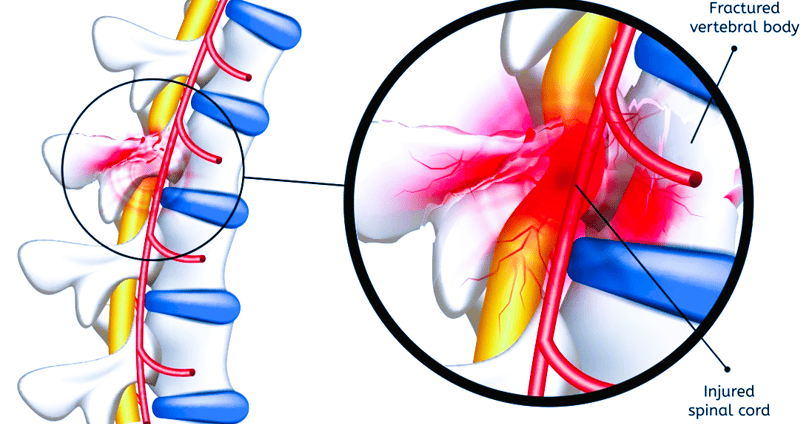Acute Spinal Cord Injury: Causes, Symptoms, and Treatment
Learn about the impact of spinal cord injury and find valuable resources for those affected. Gain insight into the latest research and advancements in spinal cord injury treatment.


An acute spinal cord injury (SCI) refers to a sudden and severe injury to the spinal cord, resulting in temporary or permanent changes in its normal function. It is a traumatic event that can have significant physical, emotional, and psychological consequences for the affected individual.
Causes of Acute Spinal Cord Injury
There are several common causes of acute spinal cord injury, including:
Motor vehicle accidents
Falls
Sports-related injuries
Acts of violence
Recreational activities
These causes can lead to various types of trauma, such as fractures, dislocations, or compressions of the spinal cord.
Symptoms of Acute Spinal Cord Injury
The symptoms of acute spinal cord injury can vary depending on the location and severity of the injury. Common symptoms include:
Loss of movement or paralysis
Loss of sensation
Difficulty breathing or shortness of breath
Loss of bowel or bladder control
Pain or intense pressure in the back or neck
Weakness or numbness in the limbs
In more severe cases, individuals may experience complete loss of function below the level of the injury, resulting in tetraplegia (also known as quadriplegia) or paraplegia.
Treatment of Acute Spinal Cord Injury
Immediate medical attention is crucial for individuals with acute spinal cord injury to prevent further damage and maximize recovery. The primary goals of treatment include:
Stabilizing the spine to prevent further injury
Ensuring adequate oxygen supply to the spinal cord
Reducing inflammation and swelling
Preventing complications, such as pressure sores or infections
Rehabilitation to promote functional recovery
Treatment options may include:
Surgery to stabilize the spine, remove any fragments or foreign objects, or decompress the spinal cord
Medications to reduce inflammation, manage pain, or prevent complications
Physical therapy to improve strength, mobility, and independence
Occupational therapy to assist with activities of daily living
Patient and family education to address emotional and psychological needs
It is important to note that the extent of recovery and functional outcomes for individuals with acute spinal cord injury can vary greatly. Rehabilitation and ongoing support play a crucial role in helping individuals adapt to their new circumstances and achieve the highest possible level of independence and quality of life.
In conclusion, acute spinal cord injury is a serious and life-altering condition caused by various traumatic events. Prompt medical intervention and comprehensive rehabilitation are essential for optimizing outcomes and supporting individuals in their journey towards recovery and adjustment.
